Fascinating are the expressions that have set new standards in this latest edition of the Biennale Teatro.heroic utopias and revolutionary miracles”, in the words of the directors Stephen Ricci And John Strong, for a theater trying to regain its place in the competition with digital means. Among these utopias is undoubtedly the one that is the focus of the Swedish director’s latest work Mattias Andersson, We who have lived our lives again (Vi som fick leva om våra livpresented at the Teatro Alle Tese in the Arsenale.
Andersson’s Documentary Theater
Playwright and director, first artistic director of the Backa Theater and then the Royal Dramatic Theater in Stockholm, Mattias Andersson has done his documentary theatre a project with a social, political and popular vocationof great philosophical depth. With We who have lived our lives again challenges academic research methods and collaborations with anthropologists and sociologists to start from a question posed to 137 Swedish citizens of various ages and backgrounds: “What would you do if you were given the chance to relive your life?”
An existential question that smells of fear: about the chance lost forever or about this mistake that cannot be erased. Based on the collected material, from the most insignificant answers – someone would have done it If someone learned French instead of German, someone else would never quit smoking weed – to those associated with the guilt and real opportunity for emotional attachment, The director has created a dramaturgical score that combines voice and choreography and is very well coordinated in tones and registers.
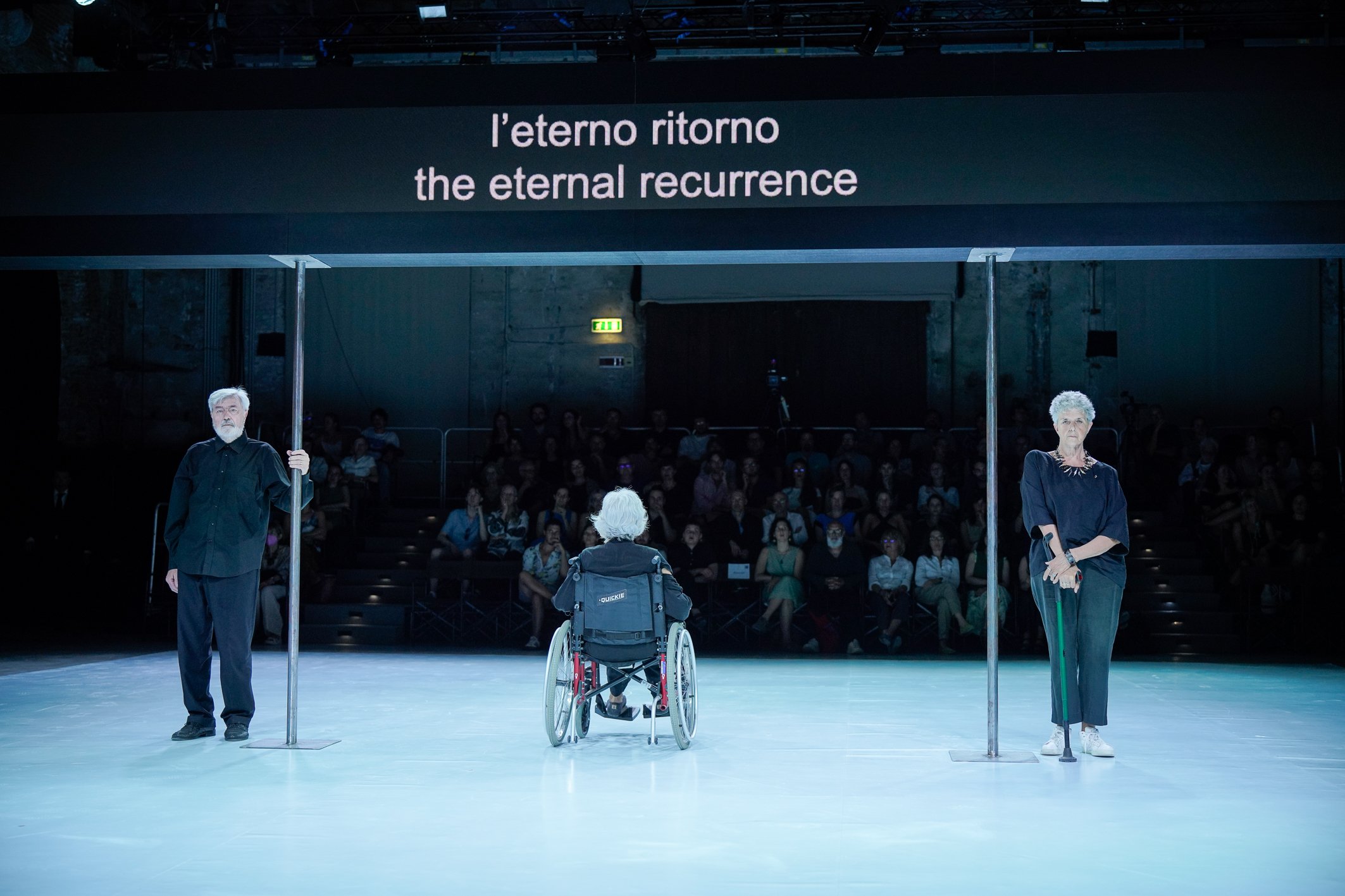
Andersson and the eternal return theory
The thirteen actors on stage, forming a top-class cast, never stay true to a single character and reflect the constellation of voices. They act in harmony with a bare stage surface the minimalism Andersson’s aesthetic: “an empty space that makes you realize that life can be anything‘ he confides in us. This question confronts us from the start with the bitter observation of a false freedom of choice, the impossibility of defining our identity, self-determination within a society that has already chosen us: “We are soul, not body: this is attributed to us by the world in which we live. And then it would be more correct to ask yourself: “What would we do if we had the possibility to really choose how and with whom we want to live?” Andersson’s fight against stereotypes is not only a question of philosophy, or rather of Physics: an opening towards the eternal return of Nietzsche and parallel universes. We are matter that, once its cycle is complete, returns to itself in a series of identical iterations, and our choices are nothing more than the sum of infinite combinations of particles that we cannot control. We just have to sit at the table with the dark lady, dressed all in black like Andersson’s six characters, taking turns rolling our last die and desperately waiting for the final exit from the scene.
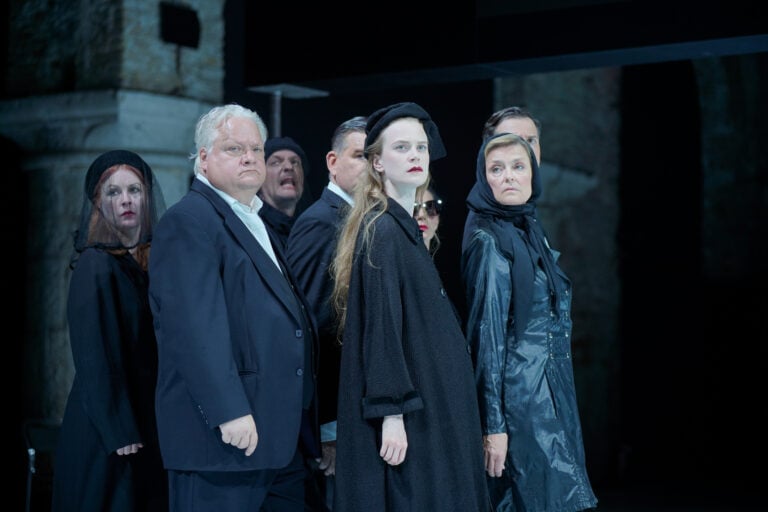 1/8
1/8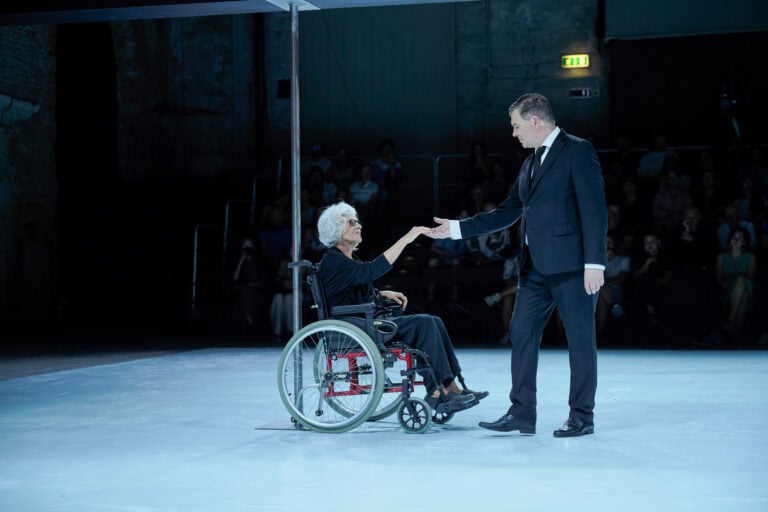 2 / 8
2 / 8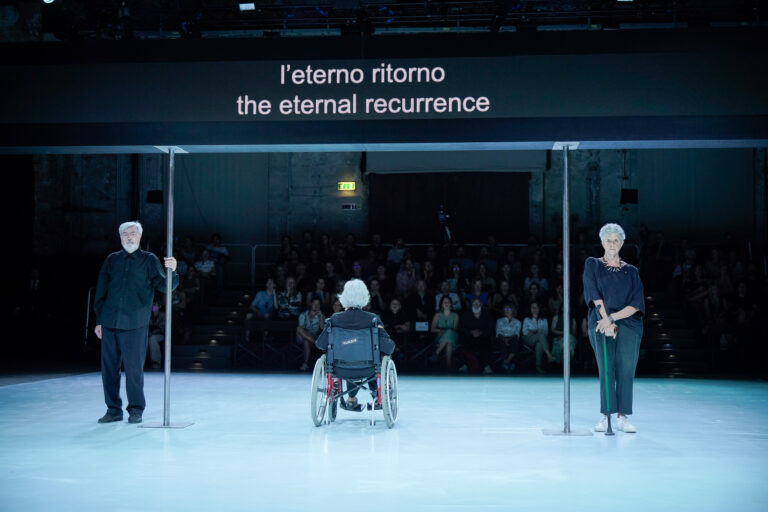 3/8
3/8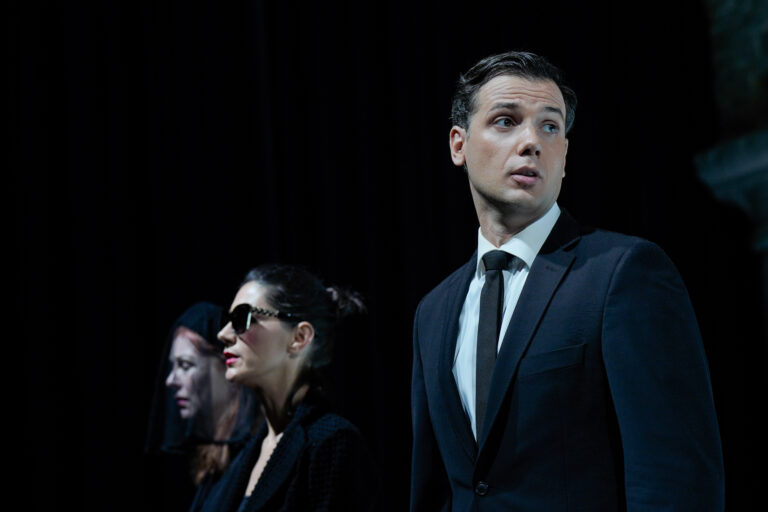 4 / 8
4 / 8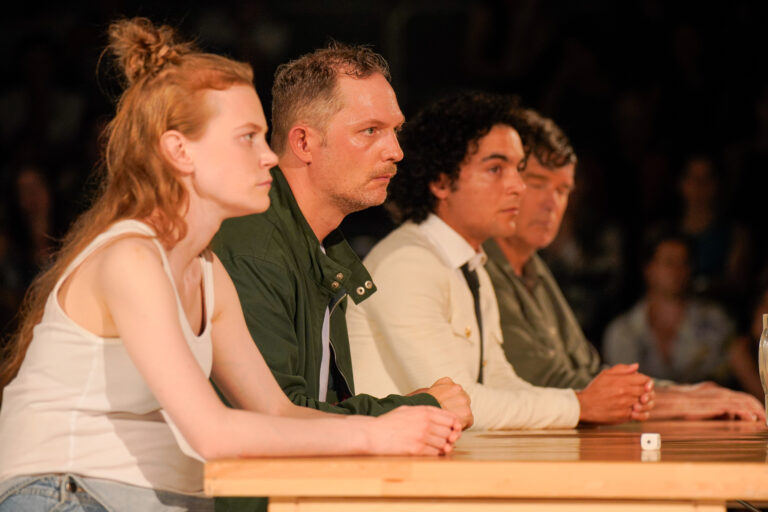 5/8
5/8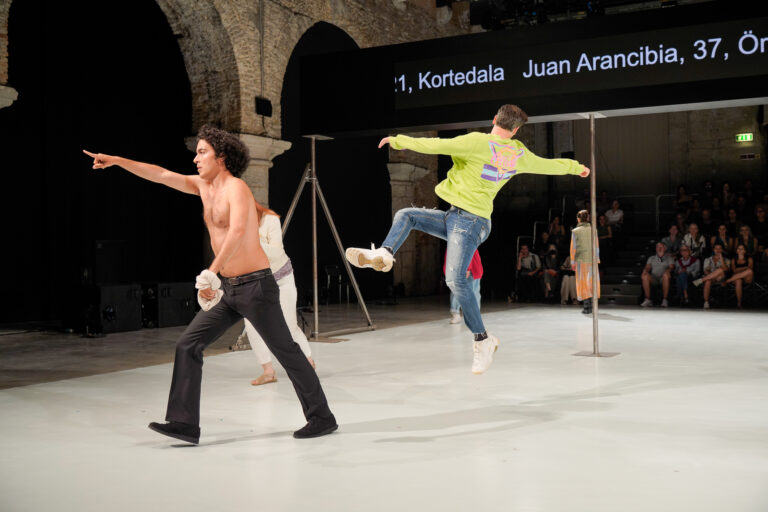 6 / 8
6 / 8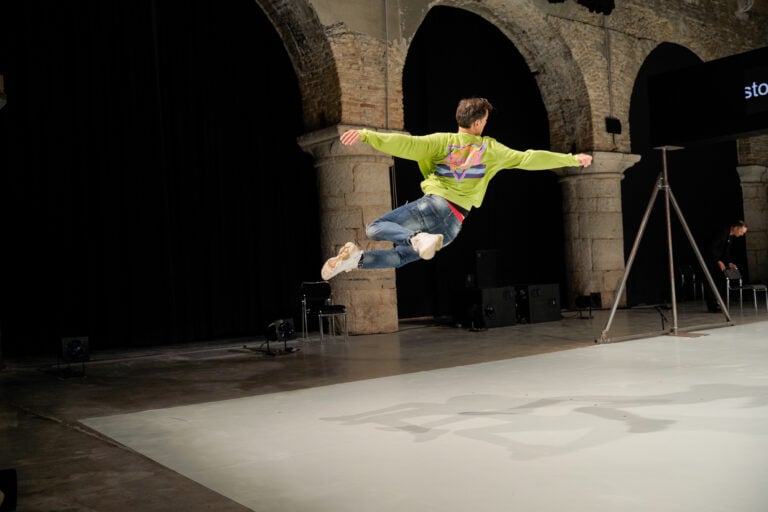 7/8
7/8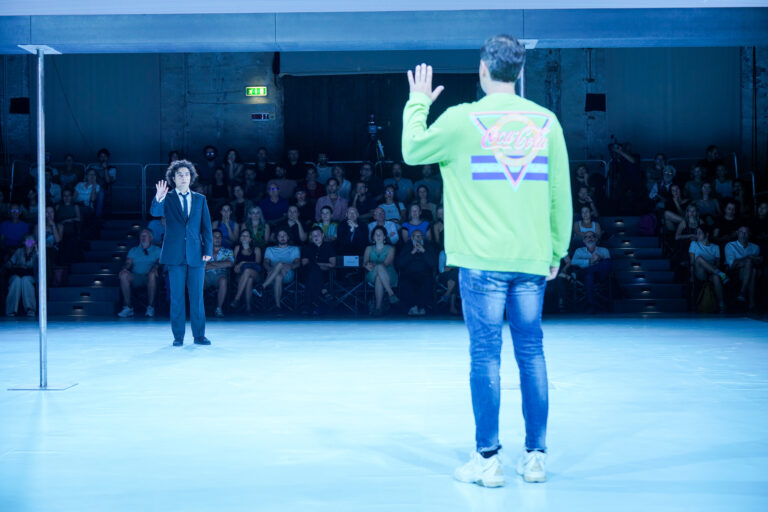 8/8
8/8The theater as a space of the possible
Theater is the only means capable of challenging the schemas and creating new spaces of the possible: a real chance to relive our lives. I fuck you to spend my life therefore it is not a great homage to the theater and its utopian project. Andersson tells us: “Theater can break through the rigidity of everyday life, freeing people from this state of imprisonment and opening them to the dream and desire to live an alternative life.” The contrast to the provocation of The space From El Conde de Torrefiel (also guest at the Biennale Teatro): The company presents a theater doomed to death, as evidenced by the “cemetery-like” opening of the curtain, with an expanse of flowers and candles, and the presence of puppet figures with their faces covered by one Patina that dehumanizes facial features and unnatural movements. in reverse, Andersson’s show celebrates theater as the art of the future: “I believe in the power of theater over the future, a weapon that can push us to distance ourselves from media compulsive consumption and the determinism of globalization.”.
Valentina Cirilli